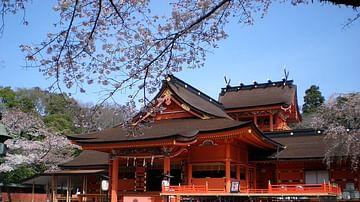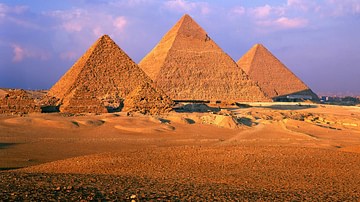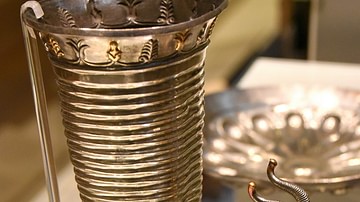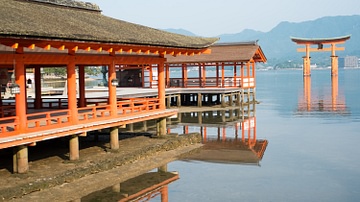Search
Remove Ads
Advertisement
Summary 
Loading AI-generated summary based on World History Encyclopedia articles ...
Search Results

Definition
Shinto Architecture
The architecture of the 80,000 Shinto shrines in Japan varies depending on geographical location, the deity worshipped, and the date of foundation. The earlier Shinto shrines tend to be simpler and less decorative affairs than those which...

Definition
Shinto
Shinto means 'way of the gods' and it is the oldest religion in Japan. Shinto's key concepts include purity, harmony, family respect, and subordination of the individual before the group. The faith has no founder or prophets and there is...

Lesson Pack
Shinto: An Introduction
Discover Shinto through its beliefs, values and rituals with 25 pages of lesson plan, activities, homework and assignments, keys and marking grids. All you need to teach on that subject: included and ready to print in this resource! Objectives...

Lesson Pack
Shinto: The Power of Rituals and Beliefs
Discovering Shinto: The power of rituals and beliefs... 27 pages of lesson plan and engaging activities about religion in ancient Japan. All you need to teach on that subject included in this resource and ready to print! Objectives Discover...

Collection
The Shinto Religion
Shinto is the oldest religion in Japan and has become an integral part of that country's culture whether it be in daily worship and ritual, the famous tourist site shrines or the appearance of Shinto characters in contemporary comics and...

Definition
Renaissance Architecture
Renaissance architecture originated in Italy and superseded the Gothic style over a period generally defined as 1400 to 1600. Features of Renaissance buildings include the use of the classical orders and mathematically precise ratios of height...

Definition
Ancient Egyptian Architecture
Ancient Egyptian architecture is often associated closely with the pyramids of Giza but was actually quite diverse, taking a number of forms in the construction of administrative buildings, temples, tombs, palaces, and the private homes of...

Definition
Ancient Persian Art and Architecture
Persian art and architecture in the present day is associated with the nation of Iran and usually designated as beginning with the Achaemenid Empire (c. 550-330 BCE) but has an even longer history with its origins dating back to before the...

Definition
Mesopotamian Art and Architecture
Ancient Mesopotamian art and architectural works are among the oldest in the world, dating back over 7,000 years. The works first appear in northern Mesopotamia prior to the Ubaid Period (c. 5000-4100 BCE) and then developed in the south...

Definition
Itsukushima Shrine
Itsukushima Shrine is a Shinto shrine on the island of the same name, also known as Miyajima, located in Hatsukaichi, Hiroshima Prefecture, Japan. Traditionally founded in the 6th century CE, the present layout of buildings dates to the 12th...